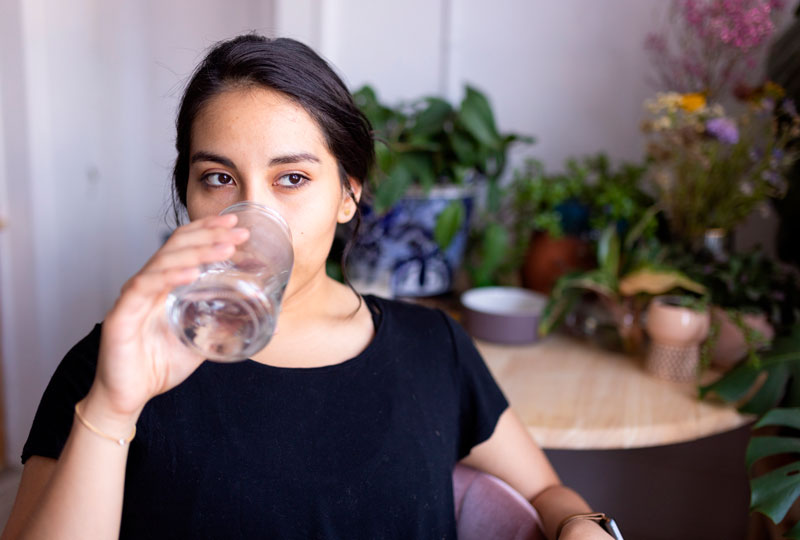This screening test is so important for avoiding colorectal cancer. How to ace it.
Colorectal cancer is common – it is the No. 2 cause of cancer deaths in the U.S. (Lung cancer is No. 1.)
It develops in the colon (the large intestine) or the rectum, which connects the colon to the anus. In early stages, colorectal cancer does not cause symptoms, so getting screened for it is important for preventing advanced colorectal cancer.
The best screening test is a colonoscopy. It’s done under general anesthesia. A doctor threads a thin tube, tipped with a camera, from the rectum through the colon to check the colon walls for signs of cancer. If any precancerous growths, called polyps, are found, the doctor can remove them during the same test.
Screening should start at age 45
For years, patients were told to get their first colonoscopy at age 50. Recently medical guidelines changed, explained Dr. Reid Ness, a Vanderbilt Health gastroenterologist. Now people at average risk for colorectal cancer are urged to get screened starting at age 45, because the number of these cancer diagnoses in people younger than 50 is rising.
Those at high risk for colorectal cancer should be screened even younger than 45. Ness explained that people at high risk for colorectal cancer have:
- A first-degree relative (parent, sibling or child) with colorectal cancer or an advanced polyp in the colon or rectum.
- A genetic syndrome that makes colorectal cancer more likely.
- Inflammatory bowel disease or cystic fibrosis.
- Colorectal polyps, found in some other way than colorectal screening.
- Symptoms of colon cancer that has advanced (unexplained ongoing abdominal pain, weight loss, iron-deficiency anemia or blood in the stool, even if you’ve only noticed it once).
What to know about the prep’s timing
Colonoscopy “prep” has an unpleasant reputation. It involves drinking a large amount of prescription fluid ahead of the test, to flush out the colon so the doctor can see the colon walls clearly.
The timing of the prep has changed in recent years, to a “split prep.” The pharmacy provides prescription powder in a large jug, with instructions for when and how to add water to create the prep fluid. Most patients will need to drink half the fluid the afternoon before the colonoscopy, and half late that night or early in the morning of the test.
Tips for getting through the prep
Preparing for a colonoscopy really starts days ahead. Ness tells patients to avoid eating seeds, popcorn or high-fiber foods for a week before their procedure. “The colon doesn’t empty those things quickly,” he said. “The worst are poppy seeds or chia seeds.” If seedy foods are lingering in the colon, the doctor may have to stop the colonoscopy and send the patient home to repeat the prep and the screening days later.
The day before the colonoscopy, do not eat solid foods. You’re limited to clear liquids of a light color. Ness is a fan of popsicles (light colored ones).
Many people dislike the taste of the prep fluid, which you’ll need to drink 8 to 10 ounces at a time. It’s OK to add Crystal Light or a similar product to it to improve the taste, Ness said – choose one without sugar and avoid red or dark-colored powders. Do not flavor the prep solution with anything peppermint; that can trigger reflux.
You might find that drinking each glass as quickly as possible is easier than slowly sipping.
Another way to get through downing the prep? Ness turned his own prep into a game. “I throw a ball to my dog, and I have to drink until the dog returns the ball.”
An alternative to colonoscopy
Colonoscopy is the “gold standard” of colorectal cancer screening. It’s good at finding cancer and polyps; the polyps are removed during the test; and most people need to repeat it only once every 10 years.
Another screening method available in the U.S. goes by the brand name Cologuard. This test, which is administered at home, examines a stool sample looking for blood and other signs of cancer. There is no prep to drink. However, it must be repeated every three years. It does not remove polyps. And if this test indicates possible cancer, the patient must undergo a colonoscopy to confirm the diagnosis.
Each patient should be able to choose the test they prefer, Ness said: “If someone feels too anxious to have colorectal cancer screening by colonoscopy, they should talk to their doctor” to decide which type of test is best for them, Ness said.
But it’s not wise to put off a colorectal screening, even if you feel fine, he said. Precancerous polyps cause no symptoms, so you don’t know whether you have them, “and removing them can prevent colorectal cancer,” Ness said. “Colorectal cancer found in persons without symptoms are usually less advanced, and the detection of less advanced colorectal cancers increases the chances of curing and survival.”

Early detection saves lives
Getting checked for colorectal cancer is so important, because this common type of cancer does not have symptoms at first. Screenings can help detect cancer in its earlier stages, when treatment is most successful. Talk to your doctor about when you should get your first colonoscopy.




